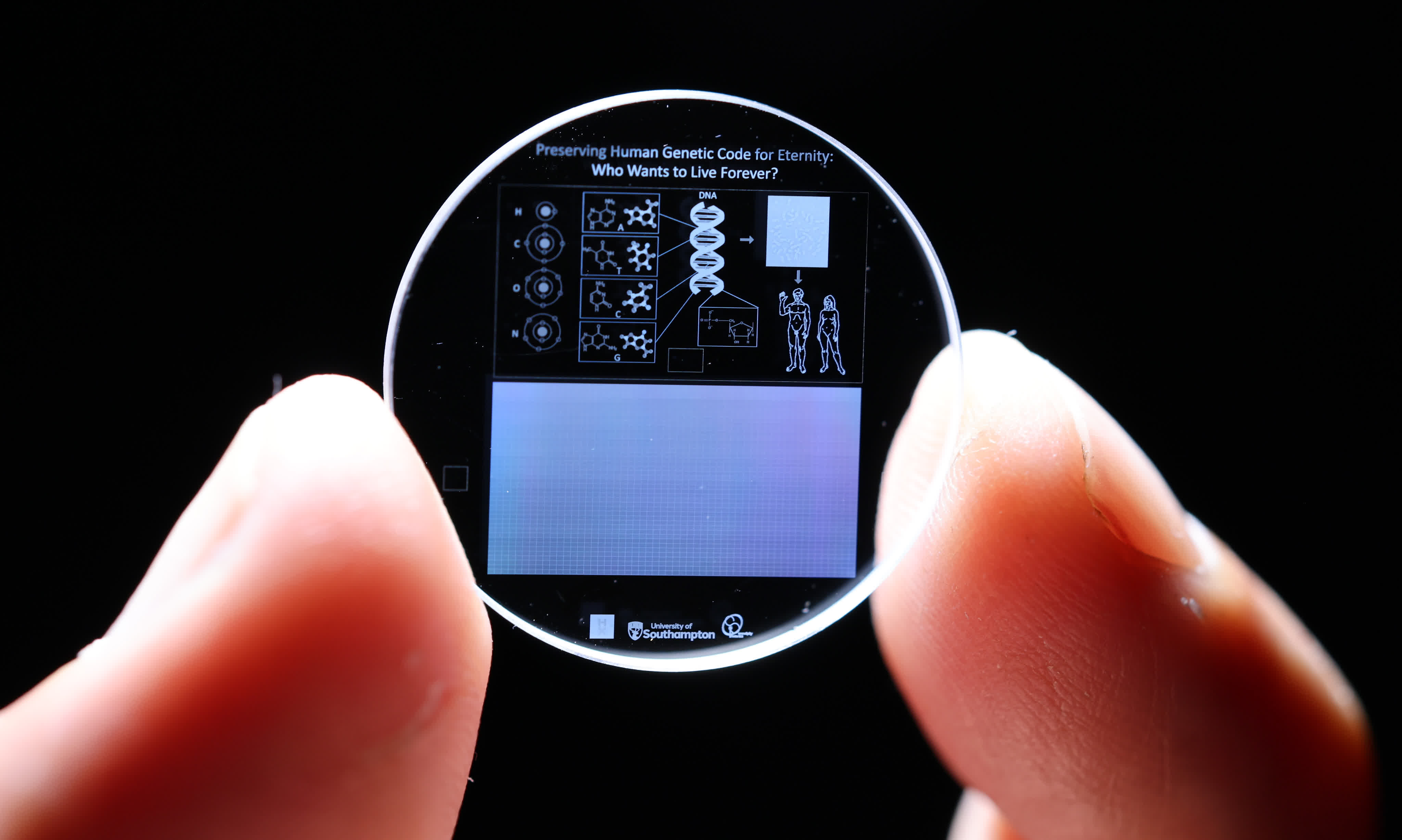Researchers at the University of Southampton in the UK successfully stored the entirety of the human genome sequence onto an indestructible 5D optical memory crystal no bigger than a penny. The indestructibility claims are no joke since the discs can withstand temperatures up to 1,000°C, cosmic radiation, and even direct impact forces of 10 tons per cm2.



Digitize all national history, literature, and culture. Put them on a hundred of these and distribute them all over the world. Refresh every 6 mos. Keep one on a server that all the kids can access.
Next time there’s war or whatever intolerant culture comes into power, and loots the museums, stops culture, or blows up statues, at least you’ve kept the history alive.
Think of it as the Library of Alexandria in horcrux form.
P.S. Important to include a user’s guide, reference schematics for the reader, and FAQs, etched into something semi-permanent alongside all the copies.
Make sure it has friendly words on the front line Don’t Panic.
Hey I just came here from another thread. Can we send someone back in time to invent Pokémon before Nintendo then sue them?
Just shot them in all directions from the solar system into space, but also add ads so aliens know to ignore and avoid us.
“Fuck, why is my galactic supermassive DNS sinkhole not blocking these ads!??” - the frustrated alien
PSA: always update your supermassive-Pi-Holes
If it’s anything like the similar optical data storage crystals, it’s write only.
They probably have no way to read these yet.
How would they know they’ve written to it then?
Cool question, don’t know, have fun figuring it out.
I just remember that was the case last time.
WORN: Write Once Read Never.
Soon to be improved as,
WORLD: Write Once Read at Later Date.
It gets a bit harder to market if they’re not sure if they wrote successfully:
Write Hopefully Once Read Eventually
So I’m imagining them as a legend based on unverified lore, conjecture, and conflicting information with no real evidence of them ever existing and I’m having a difficult time seeing where the value lies in that.
If they could get VR programming on there, they could even replicate an immersive art exhibit experience. The Mona Lisa might get destroyed, but the VR experience of seeing it in person will at least live on.